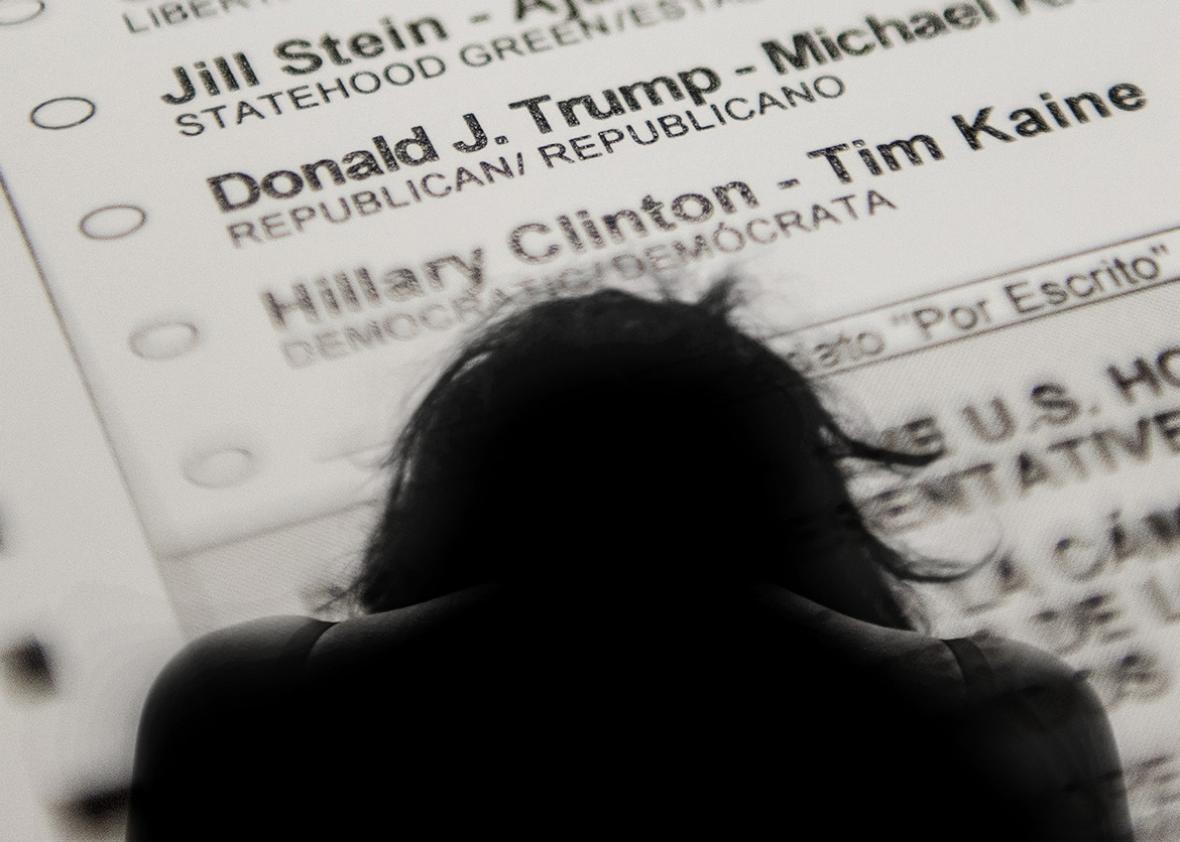When former NPR producer David Rector suffered a brain injury in 2009, he didn’t only lose his ability to speak and walk. He also lost his right to vote when California put him under the guardianship of his fiancée (state law dictates that anyone with a legal appointed guardian also loses voting rights). Rector successfully disputed this ruling this summer and presumably voted Tuesday morning. Can a person legally be deemed mentally unfit to vote?
It varies state by state, but it is legal in most. In all but 11 states, there are restrictions that can be imposed on the voting rights of Americans with mental disabilities. In the 39 states and the District of Columbia with restrictions, voter-competency requirements are determined by the court. The definition of what makes someone mentally fit or not varies between the states, but if a person is deemed to be unfit, she cannot vote. In all states, only a court can determine whether an individual is mentally fit to vote, not an election official, poll worker, or doctor.
What could make the court decide someone is unfit to vote? In some states, the right to vote is removed for anyone determined to be non compos mentis, or not of sound of mind, by a court, even if the incident does not involve a specific assessment of voting competency. (In some states, the restrictions still use outdated terminology, like idiot or insane person to disenfranchise those with mental illnesses.) In 15 states and Washington, D.C., any individual who is under guardianship is also barred from voting, such as what happened to Rector. Critics say this is problematic because whether or not a person is deemed mentally incapacitated and requires a guardian does not necessarily indicate whether or not that individual is competent enough to vote. About 20 states disenfranchise an individual only if a court decides he is specifically unable to vote.
Outside of the guardianship process, a person’s mental competency may be questioned in a court of law during a criminal or civil matter, if an individual is judged to not be mentally competent to stand trial or sign a legally binding contract. In these cases, it is the individual who most often makes the incompetency defense for herself as a legal strategy.
It is infrequent that a decline in mental state would be brought up in a court without another inciting incident. For this reason, people who experience slowly developing disabilities, such as dementia, often retain their right to vote. They are allowed to bring caregivers to the polls with them to assist them.
If a person loses the right to vote after being put under guardianship, she can request to have it restored through the probate court. Restoration of these rights can entail passing a quiz about politics and current events. Critics argue this standard may violate the Voting Rights Act of 1965, which outlawed literary tests and other discriminatory practices used to disenfranchise minority voters.
Explainer thanks the Judge David L. Bazelon Center for Mental Health Law and the National Disability Rights Network.
